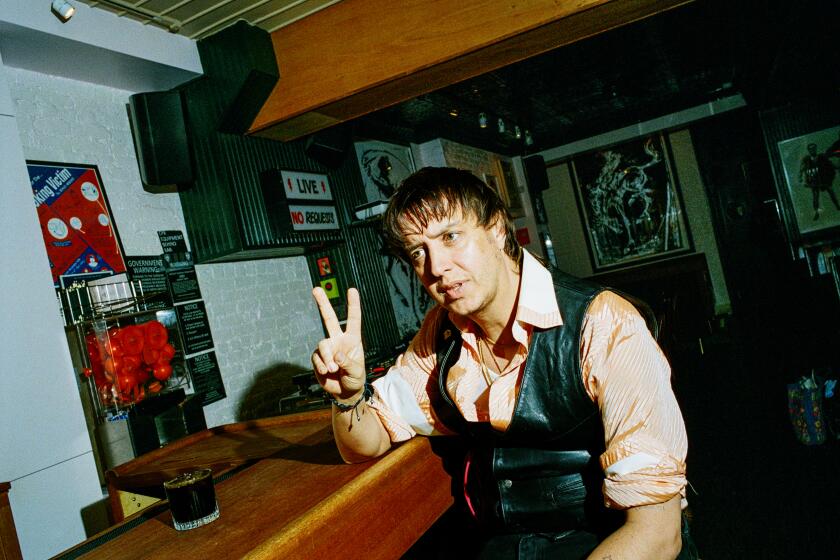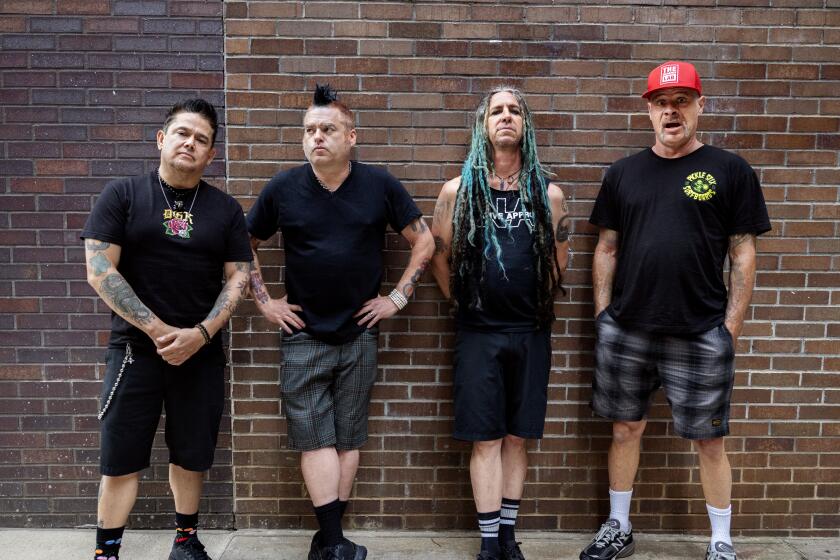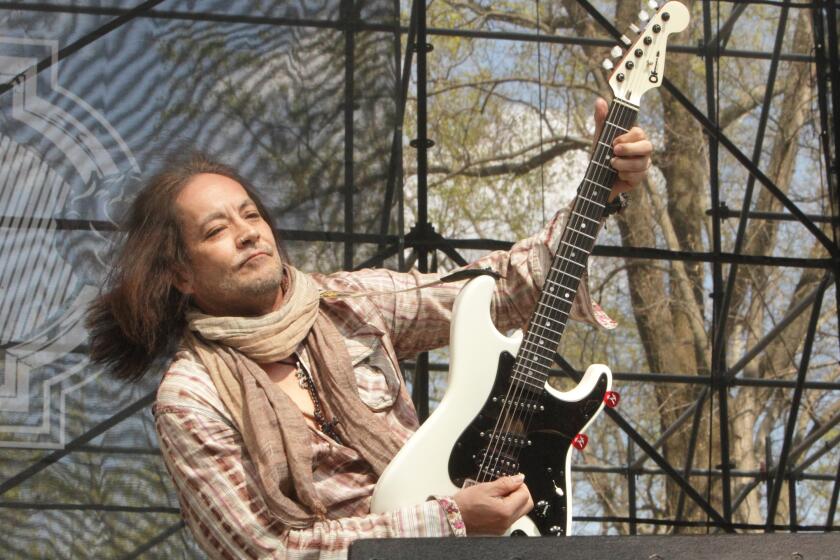JAZZ SPOTLIGHT : MJQ Masterworks From a Vintage Year
THE MODERN JAZZ QUARTET
“Dedicated to Connie”
Atlantic Records
* * * *
At its best, the music of the Modern Jazz Quartet was--and, remarkably, continues to be--one of the high points of post-World War II jazz. The MJQ was occasionally criticized in its earlier years for music director and pianist John Lewis’ resolution to provide a formalized concert style of visual presentation and his forays into classical music forms. But the quartet nonetheless also possessed, from the very beginning, the capacity to produce creatively illuminating, hard-swinging jazz.
This recently rediscovered, previously unreleased two-CD set, recorded live in Slovenia in mid-1960, captures the MJQ at one of its performance peaks. Lewis is right on target when he describes the date: “Never before or since has the Modern Jazz Quartet played better, whether on stage or in the recording studio.”
(Appropriately, the album has been dedicated to Connie Kay, the group’s drummer for 40 years, who died in December. Lewis, vibist Milt Jackson, bassist Percy Heath and new drummer Tootie Heath, Percy’s brother, continue with an active schedule.)
The program offers an especially rich gathering of MJQ classics, including Lewis’ “Django,” “Vendome” and “Odds Against Tomorrow,” a 23-minute version of his “The Little Comedy” suite, and Jackson’s “Bag’s Groove” and “Cylinder.”
The playing is superb, piece after piece ringing with the MJQ’s singular ability to blend clockwork ensemble precision with an urgent forward drive. Tuxedos and chamber music staging may have characterized the MJQ’s exterior, but the inner heart of the music has always been firmly connected to the roots of jazz.
Lewis’ “Little Comedy” suite (one of several works reflecting his attraction to commedia dell’arte) is an engaging illustration of the kind of exploration of extended musical forms that has been done too rarely in jazz. Moving well beyond traditional A-A-B-A song structure and 12-bar blues, Lewis and the MJQ build a performance as intellectually fascinating for its architectural design as it is rhythmically compelling for its opened-up improvisations.
What also becomes clear in many of the works is the way Lewis’ crisp, contrapuntal style of accompaniment helped generate the MJQ’s subtle but insistent sense of swing. Jackson has long been depicted as the group’s jazz engine, but even a casual hearing of this marvelous performance reveals the extent to which Lewis furnished the rhythmic fuel to energize that engine.
Listen to some of the more atypical MJQ selections, for example: the way Lewis underscores the first segment of Jackson’s solo in “I Should Care” with a stride-tinged counter-theme; the stop-time rhythms in “It Don’t Mean a Thing (If It Ain’t Got That Swing)”; the floating elegance and shifting tempos of “A Social Call.” This is a performance that brilliantly affirms the identity of jazz as America’s true classical music.
A valuable addition to the jazz lexicon, “Dedicated to Connie” is a vital entry in any serious jazz record collection.
Albums are rated on a scale of one star (poor), two stars (fair), three stars (good, recommended), four stars (excellent).
More to Read
The biggest entertainment stories
Get our big stories about Hollywood, film, television, music, arts, culture and more right in your inbox as soon as they publish.
You may occasionally receive promotional content from the Los Angeles Times.










